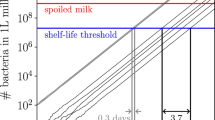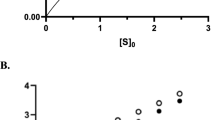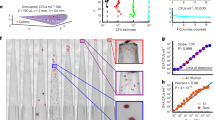Abstract
The basis of the serial dilution technique is a comparison of a solution of the sample of material under test with a solution of a standard sample of known strength. In order to make the comparison, serial dilutions of both the standard and test solutions must be made; in cases where the potency (or purity) is roughly known to start with, the number of such dilutions necessary is usually four or five. When, however, there is not even a rough indication of the probable potency of the sample being assayed, a wide range of dilutions is involved, some of which will probably be outside the scope of the tables that may be available for the evaluation of potencies in routine work. It seems desirable, therefore, to have at hand a general expression for evaluating the results of a serial dilution procedure; such an expression, apart from its intrinsic interest, will be useful for application in the cases of certain routine samples as well as of investigational work where unpredictable losses of potency may occur.
This is a preview of subscription content, access via your institution
Access options
Subscribe to this journal
Receive 51 print issues and online access
$199.00 per year
only $3.90 per issue
Buy this article
- Purchase on Springer Link
- Instant access to full article PDF
Prices may be subject to local taxes which are calculated during checkout
Similar content being viewed by others
Author information
Authors and Affiliations
Rights and permissions
About this article
Cite this article
WILD, A. General Equation for the Serial Dilution Technique in Microbiological Assays. Nature 160, 57–58 (1947). https://doi.org/10.1038/160057b0
Issue Date:
DOI: https://doi.org/10.1038/160057b0
Comments
By submitting a comment you agree to abide by our Terms and Community Guidelines. If you find something abusive or that does not comply with our terms or guidelines please flag it as inappropriate.



